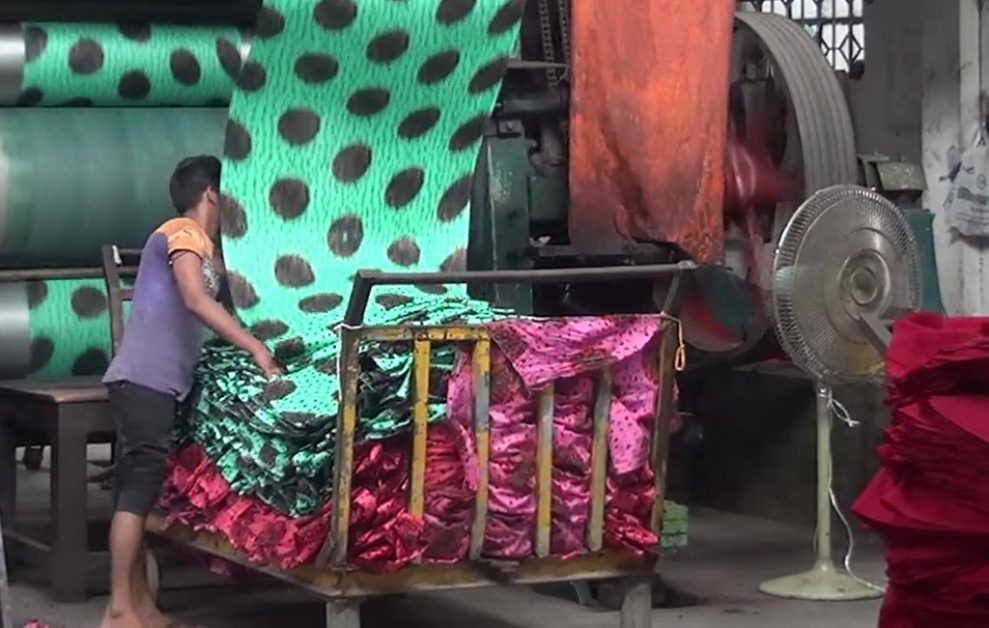September 17, 2020: A total of 5,000 small, medium, and large scale industries in the district that produce yarn and fabrics for the local market were declared closed at the onset of Covid-19 outbreak in March
After a couple of months’ recession brought about by the Covid-19 pandemic, thousands of local industries including textiles and dying in Narsingdi have started doing brisk business after reopening.
The district especially Sadar and Raipura upazila are famous for producing different artistic sarees such as Jamdani, Katan and Bruket. Different lungi, sarees, bed sheets, napkins, towels and mosquito nets are also produced here.
The main areas where production takes places include Rasulpur, Karimpur, Jitrampur, Algi, Chawla, Hajipur, Satirpara, Bhagdi, Patchdona, and Madobdee.
A total of 5,000 small, medium, and large scale industries in the district that produce yarn and fabrics for the local market were declared closed at the onset of Covid-19 outbreak in March.
Around 80% of the mills reopened in July and are currently running at full capacity.
The demand for products has been increasing as the invasion of cheaper ones from India, Pakistan and China has been stopped due to the sealing of the borders with the neighbouring country due to Covid-19, said the local businessmen.
This correspondent recently visited the district’s Sheikhchar (Baburhat), locally known as ‘Manchester of the East’ for the weaving industry and spoke to several people involved in their ancestral profession.
Meanwhile, traders and businessmen alleged they were deprived of governments’ bailout packages.
Rasidul Hasan Mintu, director of Molla Spinning Mills, said: “Activity in small, medium, and large scale mills including textiles, dyeing, printing, finishing and weaving mills has returned. Many mills have gone into production at full capacity. Moreover, the demand for yarn has also increased.”
Narsingdi Dying and Printing Association’s President Aftab Uddin Bhuiyan said: “The demand for different kinds of fabrics including poline, voile, and printing has increased. We did not get any incentives from the government despite the fact that we cover almost 70% of the demand for the country’s fabrics.”
“Around 60% of the country’s textile industries have reopened. But it will take time to reopen the rest. Many banks are reluctant while many industries’ owners do not have proper documents. For this reason, some problems have erupted in getting the government’s bailout,” said Ali Hossain Shishir, president of Narsingdi Chamber of Commerce and Industries.
Abdullah Al Mamun, vice president of Bangladesh Textiles Mills Association (BTMA) and the president of Narsingdi Chamber of Commerce and Industries, said: “The local textile industries were going through recession due to coronavirus. They are now trying to bounce back. Besides, demands for local cloths have increased as the smuggling of fabrics and cloths from different neighbouring countries including China and India has come to halt due to Covid-19. I am urging the government to ensure that these are not smuggled in future.”
Source: Dhaka Tribune







